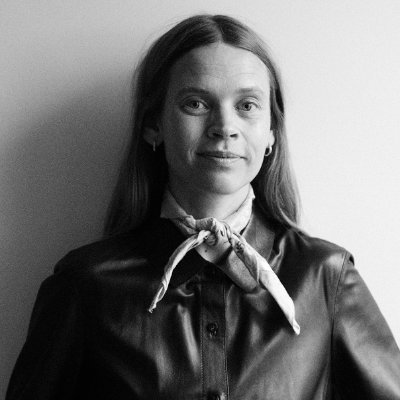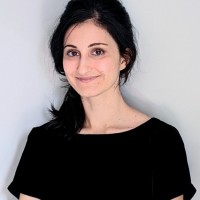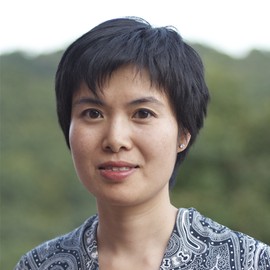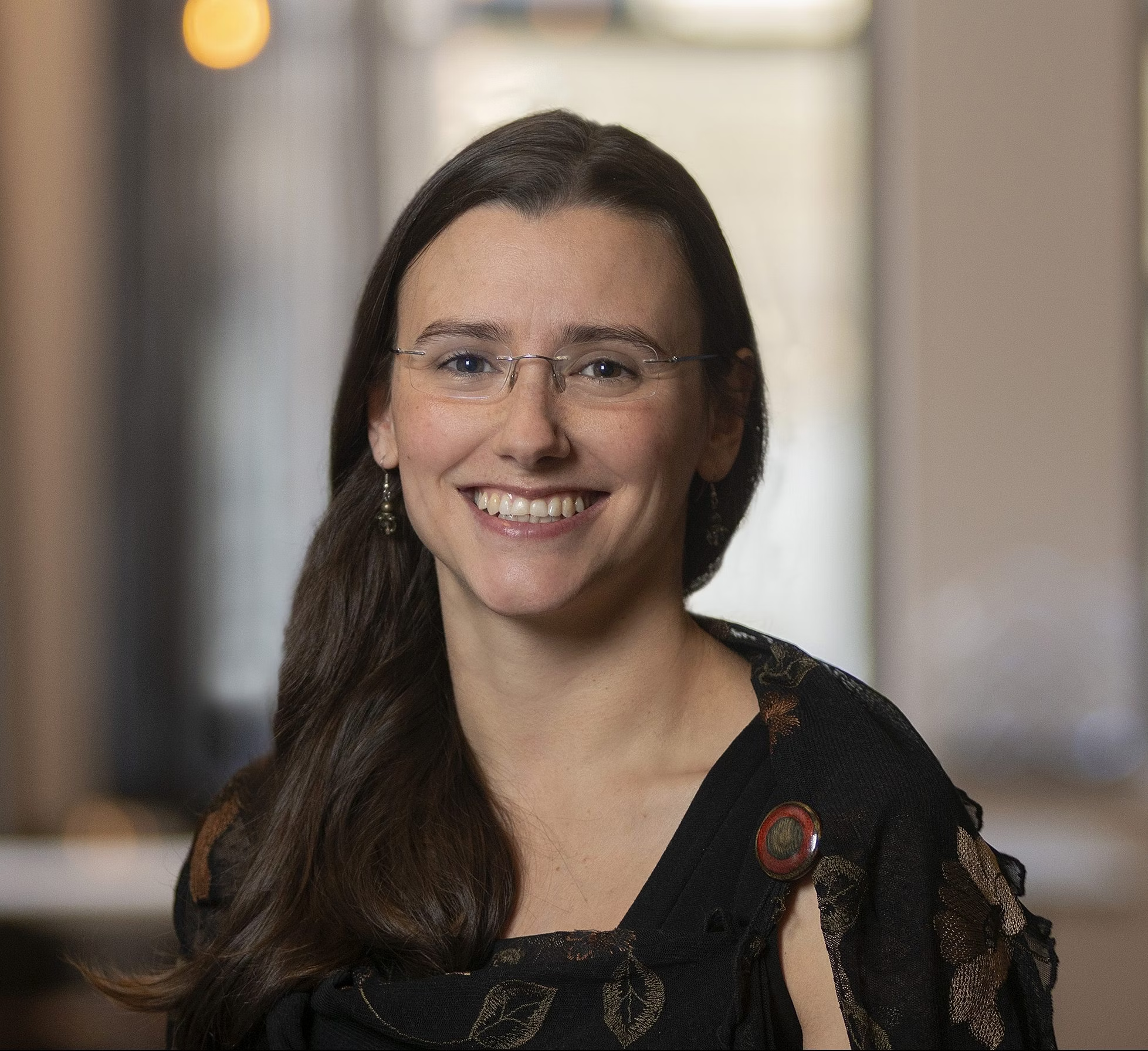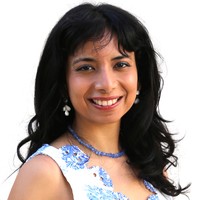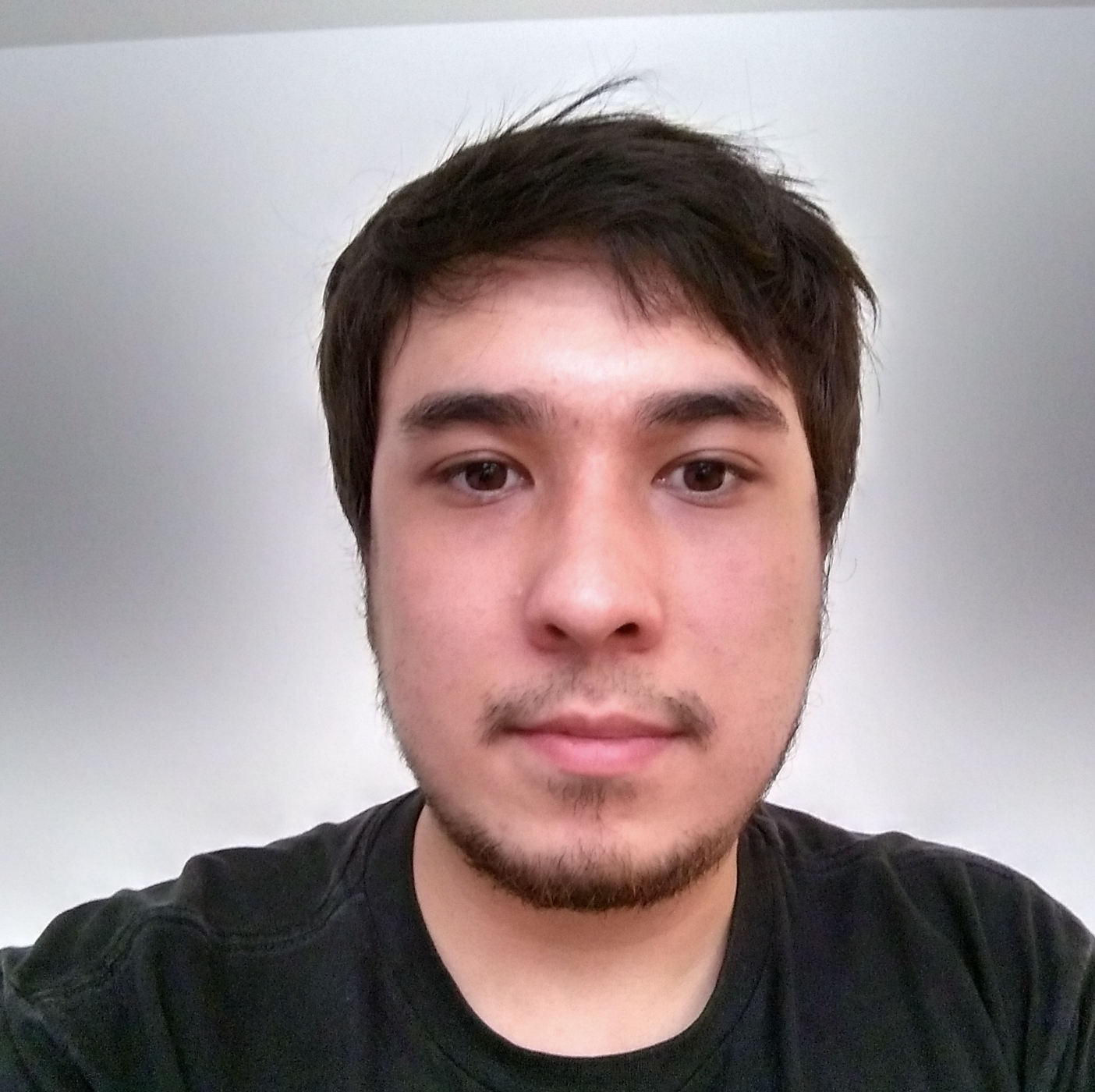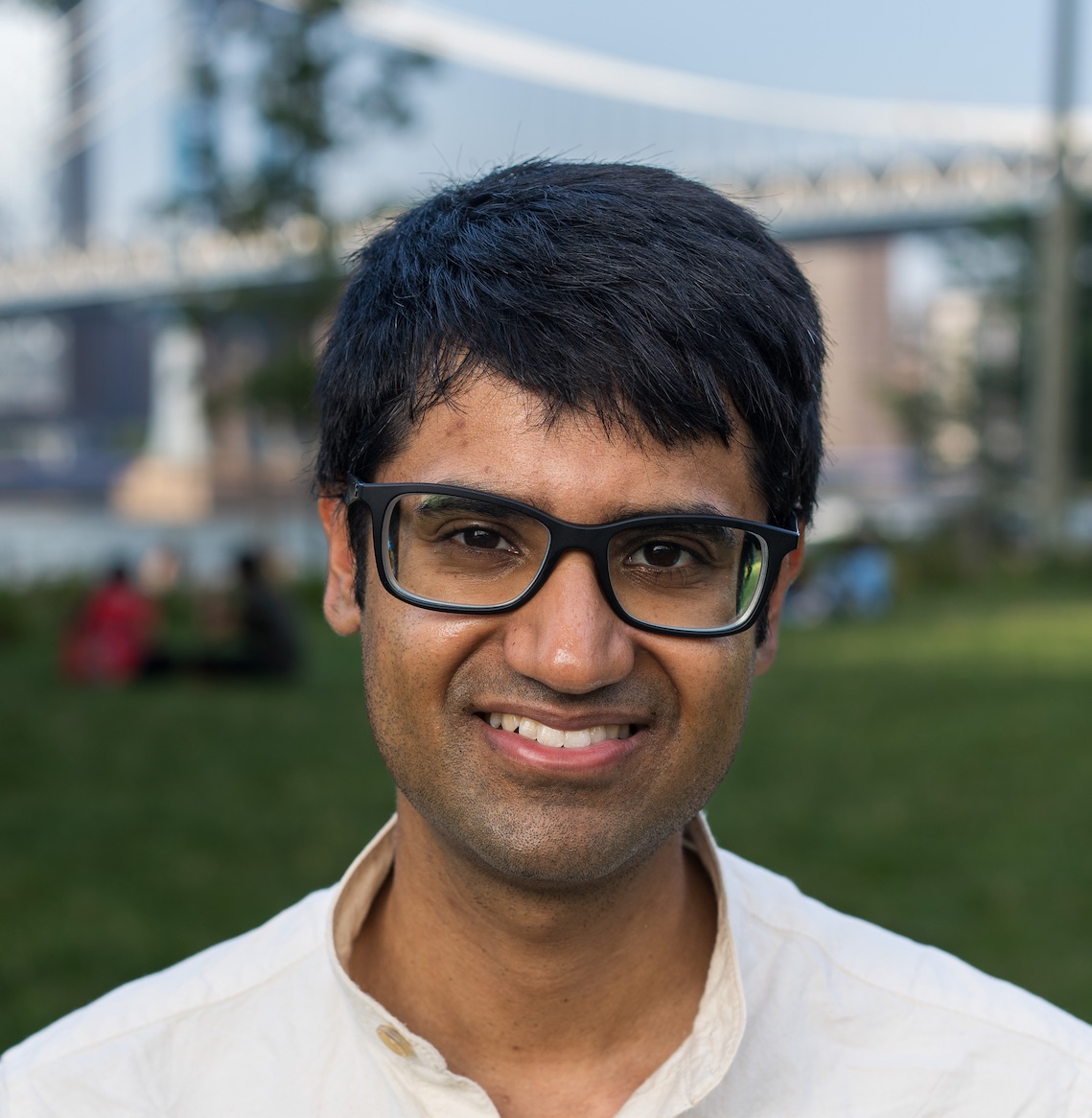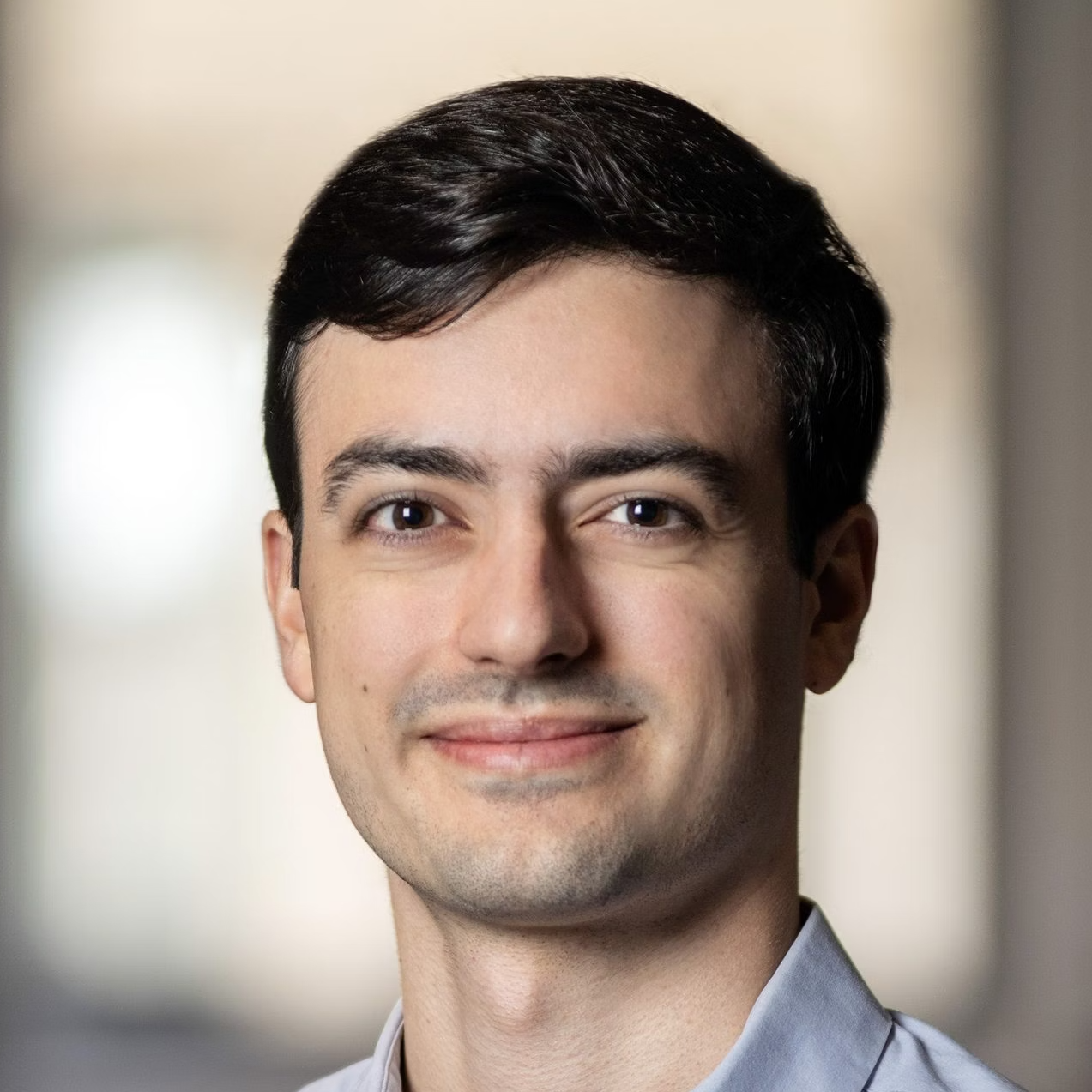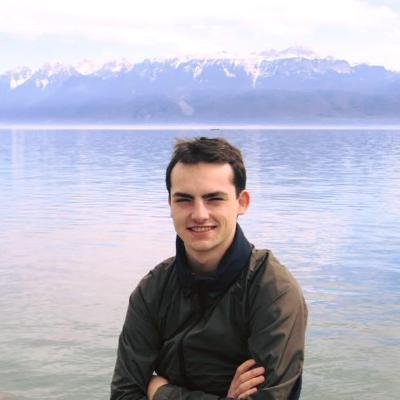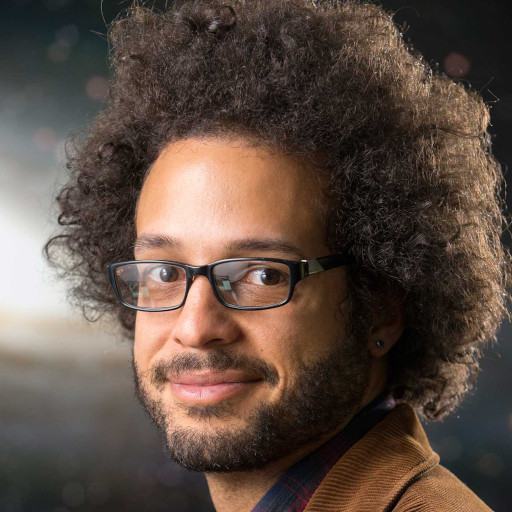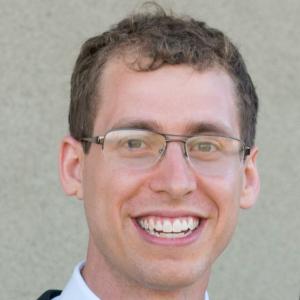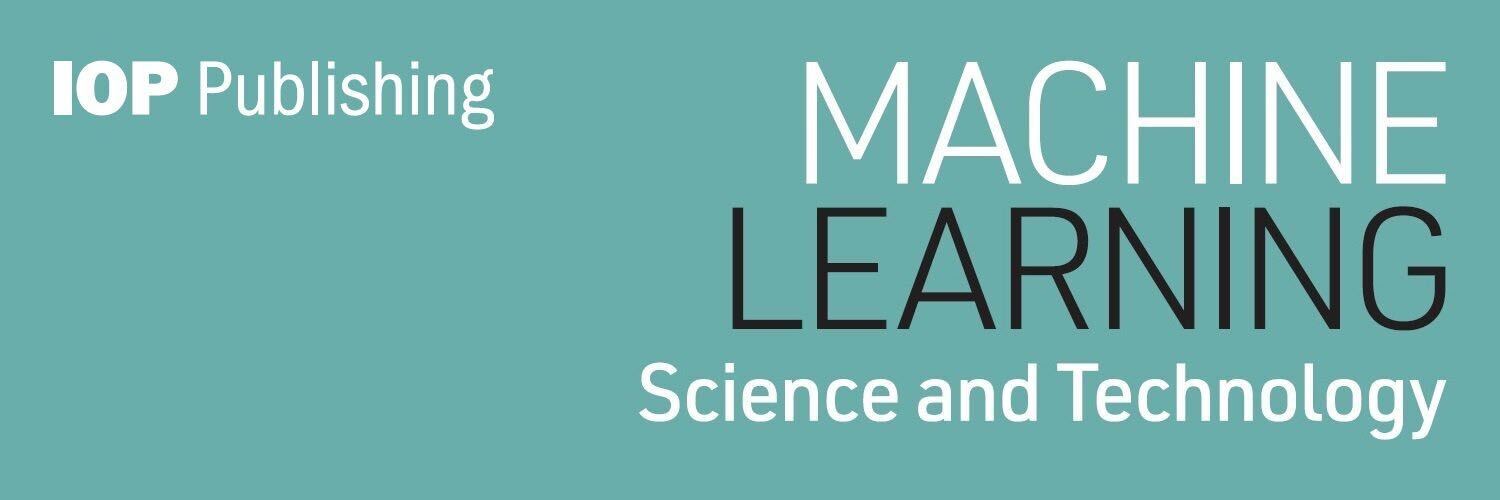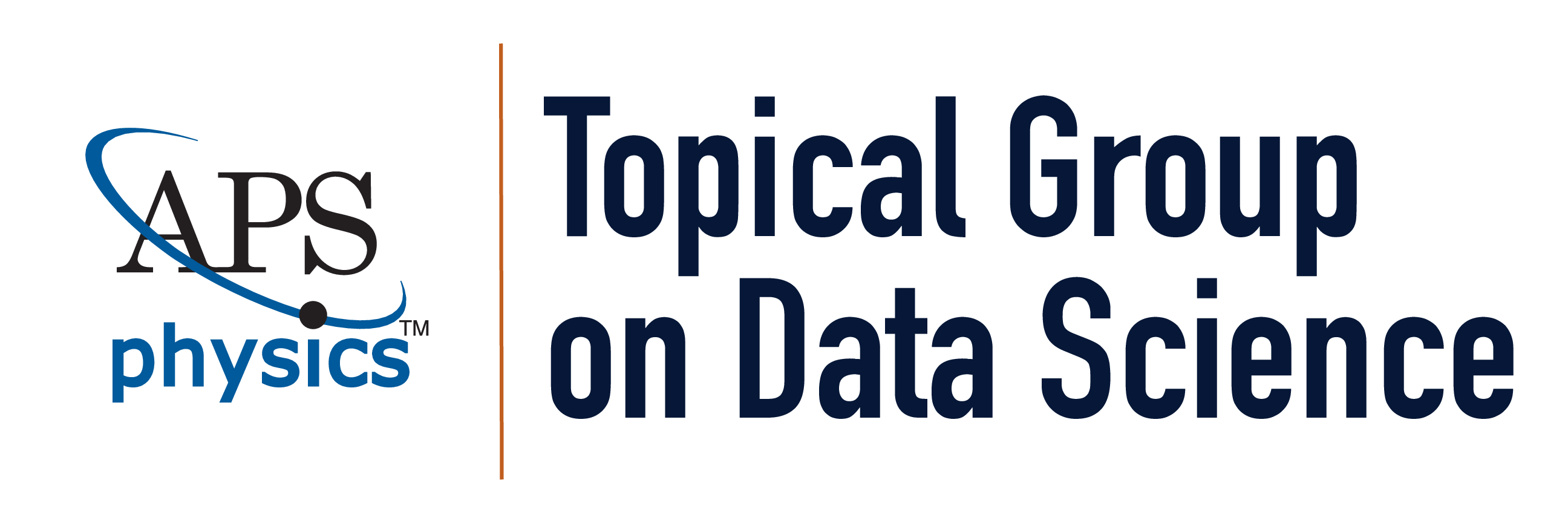| 2 |
Neural Infalling Clouds: Increasing the Efficacy of Subgrid Models and
Scientific Equation Discovery using Neural ODEs and Symbolic
Regression
[paper]
[poster]
Brent Tan
|
| 4 |
Meta-Learned Bayesian Optimization for Energy Yield in Inertial
Confinement Fusion
[paper]
[poster]
[video]
Vineet
Gundecha, Ricardo Luna Gutierrez, Sahand Ghorbanpour, Desik Rengarajan, Rahman
Ejaz, Varchas Gopalaswamy, Riccardo Betti, Soumyendu Sarkar
|
| 5 |
Uncertainty-Penalized Bayesian Information Criterion for Parametric
Partial Differential Equation Discovery
[paper]
[poster]
[video]
Pongpisit
Thanasutives, Ken-ichi Fukui
|
| 6 |
Multimodal multi-output ordinal regression for discovering
gravitationally-lensed transients
[paper]
[poster]
Nicolò Oreste Pinciroli Vago, Piero Fraternali
|
| 8 |
LLM Enhanced Bayesian Optimization for Scientific Applications like
Fusion
[paper]
[poster]
[video]
Sahand Ghorbanpour,
Ricardo Luna Gutierrez, Vineet Gundecha, Desik Rengarajan, Ashwin Ramesh Babu,
Soumyendu Sarkar
|
| 9 |
Normalising Flow for Joint Cosmological Analysis
[paper]
[poster]
Arrykrishna Mootoovaloo, David Alonso, Jaime Ruiz-Zapatero, Carlos
Garcia-Garcia
|
| 10 |
Emulation and Assessment of Gradient-Based Samplers in
Cosmology
[paper]
[poster]
Arrykrishna Mootoovaloo, David Alonso, Jaime Ruiz-Zapatero, Carlos
Garcia-Garcia
|
| 11 |
Two-Stage Coefficient Estimation in Symbolic Regression for Scientific
Discovery
[paper]
[poster]
Masahiro Negishi, Yoshitomo Matsubara, Naoya Chiba, Ryo Igarashi,
Yoshitaka Ushiku
|
| 13 |
Path-minimizing Latent ODEs as Inference Models
[paper]
[poster]
Matt L. Sampson, Peter Melchior
|
| 14 |
Climate PAL: Climate Analysis through Conversational AI
[paper]
[poster]
Sonia Cromp, Behrad Rabiei, Maxwell T. Elling, Alexander J. Herron,
Michael Hendrickson
|
| 16 |
Physics-guided Optimization of Photonic Structures using Denoising
Diffusion Probabilistic Models
[paper]
[poster]
Dongjin Seo, Soobin Um, Sangbin Lee, Jong Chul Ye, Haejun Chung
|
| 17 |
Galaxy Formation and Evolution via Phase-temporal Clustering with
FuzzyCat $\circ$ AstroLink
[paper]
[poster]
William H. Oliver, Tobias Buck
|
| 18 |
Constrained Synthesis with Projected Diffusion Models
[paper]
[poster]
Jacob K Christopher, Stephen Baek, Ferdinando Fioretto
|
| 19 |
ClariPhy: Physics-Informed Image Deblurring with Transformers for
Hydrodynamic Instability Analysis
[paper]
[poster]
[video]
Shai
Stamler-Grossman, Nadav Schneider, Gershon Hanoch, Gal Oren Reproducibility badge 🏅; Datasets & benchmarks track
|
| 20 |
Evidential deep learning for probabilistic modelling of extreme storm
events
[paper]
[poster]
Ayush Khot, Xihaier Luo, Ai Kagawa, Shinjae Yoo
|
| 21 |
Learning Fluid-Directed Rigid Body Control
[paper]
[poster]
Karlis Freivalds, Oskars Teikmanis, Laura Leja, Saltanovs Rodions, Ralfs
Āboliņš
|
| 22 |
Galaxy Morphology Classification with Counterfactual
Explanation
[paper]
[poster]
Zhuo Cao, Lena Krieger, Hanno Scharr, Ira Assent
|
| 23 |
Dyson Brownian motion and random matrix dynamics of weight matrices
during learning
[paper]
[poster]
Gert Aarts, Ouraman Hajizadeh, Biagio Lucini, Chanju Park
|
| 24 |
Towards Using Large Language Models and Deep Reinforcement Learning for
Inertial Fusion Energy
[paper]
[poster]
Vadim Elisseev, Massimiliano Esposito, James C Sexton Perspectives track
|
| 26 |
Improving Flow Matching for Simulation-Based Inference
[paper]
[poster]
Janis Fluri, Thomas Hofmann
|
| 28 |
Automated discovery of large-scale, noise-robust experimental designs in
super-resolution microscopy
[paper]
[poster]
Carla Rodríguez, Sören Arlt, Leonhard Möckl, Mario Krenn
|
| 30 |
Neural Network Simulation of Time-variant Waves on Arbitrary Grids with
Applications in Active Sonar
[paper]
[poster]
[video]
Yash Ranjith
|
| 32 |
Efficient Generation of Molecular Clusters with Dual-Scale Equivariant
Flow Matching
[paper]
[poster]
Akshay Subramanian, Shuhui Qu, Cheol Woo Park, Sulin Liu, Janghwan Lee,
Rafael Gomez-Bombarelli
|
| 34 |
Scalable physics-guided data-driven component model reduction for steady
Navier-Stokes flow
[paper]
[poster]
Seung Whan Chung, Youngsoo Choi, Pratanu Roy, Thomas Roy, Tiras Lin, Du
Nguyen, Christopher Hahn, Eric Duoss, Sarah Baker
|
| 37 |
From particle clouds to tokens: building foundation models for particle
physics
[paper]
[poster]
Joschka Birk, Anna Hallin, Gregor Kasieczka
|
| 39 |
Domain Adaptation of Drag Reduction Policy to Partial
Measurements
[paper]
[poster]
Anton Plaksin, Georgios Rigas
|
| 40 |
Reconstructing dissipative dynamical systems from spatially and
temporally sparse sensors
[paper]
[poster]
Alex Guo, Galen T. Craven, Javier E. Santos, Charles D. Young
|
| 41 |
BNEM: A Boltzmann Sampler Based on Bootstrapped Noised Energy
Matching
[paper]
[poster]
RuiKang OuYang, Bo Qiang, José Miguel Hernández-Lobato
|
| 42 |
The State of Julia for Scientific Machine Learning
[paper]
[poster]
Edward Berman, Jacob Ginesin Perspectives track
|
| 43 |
AP-SVM: Unsupervised Data Cleaning for the LEGEND Experiment
[paper]
[poster]
Reproducibility badge 🏅
Esteban León, Julieta Gruszko, Aobo Li, Brady Bos, M.A. Bahena Schott, John Wilkerson, Reyco Henning, Matthew Busch, Eric L. Martin, Guadalupe Duran, J.R. Chapman
|
| 44 |
ChemLit-QA: A human evaluated dataset for chemistry RAG tasks
[paper]
[poster]
Geemi Wellawatte, Philippe Schwaller, Huixuan Guo, Marta Brucka, Anna
Borisova, Matthew Hart, Magdalena Lederbauer Datasets & benchmarks track
|
| 45 |
GraphNeT 2.0 - A Deep Learning Library for Neutrino Telescopes
[paper]
[poster]
Rasmus F. Ørsøe, Aske Rosted
|
| 46 |
Towards Agentic AI on Particle Accelerators
[paper]
[poster]
Antonin Sulc, Thorsten Hellert, Raimund Kammering, Hayden R. Hoschouer,
Jason M. St. John Perspectives track
|
| 47 |
A Poisson-process AutoDecoder for Astrophysical, Time-variable, X-ray
Sources
[paper]
[poster]
Yanke Song, V Ashley Villar, Juan Rafael Martínez-Galarza
|
| 48 |
A method for identifying causality in the response of nonlinear
dynamical systems
[paper]
[poster]
Joseph Massingham, Ole Mattis Nielsen, T Butlin
|
| 50 |
Meta-Designing Quantum Experiments with Language Models
[paper]
[poster]
Sören Arlt, Haonan Duan, Felix Li, Sang Michael Xie, Yuhuai Wu, Mario
Krenn
|
| 53 |
A machine learning approach to duality in statistical physics
[paper]
[poster]
Prateek Gupta, Andrea E. V. Ferrari, Nabil Iqbal
|
| 54 |
Synax: A Differentiable and GPU-accelerated Synchrotron Simulation
Package
[paper]
[poster]
Kangning Diao, Zack Li, Richard D.P. Grumitt, Yi Mao
|
| 56 |
Explicit and data-Efficient Encoding via Gradient Flow
[paper]
[poster]
Kyriakos Flouris, Anna Volokitin, Gustav Bredell, Ender Konukoglu
|
| 58 |
Neural network prediction of strong lensing systems with domain
adaptation and uncertainty quantification
[paper]
[poster]
Shrihan Agarwal, Aleksandra Ciprijanovic, Brian Nord
|
| 59 |
Generation and Human-Expert Evaluation of Interesting Research Ideas using Knowledge Graphs and Large Language Models
[paper]
[poster]
Reproducibility badge 🏅
Xuemei Gu, Mario Krenn
|
| 60 |
Physics-informed Discovery of State Variables in Second-Order and
Hamiltonian Systems
[paper]
[poster]
Félix Chavelli, Zi-Yu Khoo, Dawen Wu, Jonathan Sze Choong Low, Stéphane
Bressan
|
| 61 |
Neural 3D Reconstruction of 21-cm Tomographic Data
[paper]
[poster]
Nashwan Sabti, Ram Purandhar Reddy Sudha, Julian B. Muñoz, Siddharth
Mishra-Sharma, Taewook Youn
|
| 62 |
Machine learned reconstruction of tsunami waves from sparse
observations
[paper]
[poster]
Edward McDugald, Darren Engwirda, Arvind Mohan, Agnese Marcato, Javier E.
Santos
|
| 65 |
Toward Model-Agnostic Detection of New Physics Using Data-Driven Signal
Regions
[paper]
[poster]
Soheun Yi, John Alison, Mikael Kuusela
|
| 66 |
Learning Pore-scale Multi-phase Flow from Experimental Data with Graph
Neural Network
[paper]
[poster]
Yuxuan Gu, Catherine Spurin, Gege Wen
|
| 67 |
Harnessing Loss Decomposition for Long-Horizon Wave Predictions via Deep
Neural Networks
[paper]
[poster]
Indu Kant Deo, Rajeev K. Jaiman
|
| 68 |
Scalable nonlinear manifold reduced order model for dynamical
systems
[paper]
[poster]
Ivan Zanardi, Alejandro N. Diaz, Seung Whan Chung, Marco Panesi, Youngsoo
Choi
|
| 69 |
CODES: Benchmarking Coupled ODE Surrogates
[paper]
[poster]Reproducibility badge 🏅
Robin Janssen, Immanuel Sulzer, Tobias Buck Datasets & benchmarks track
|
| 70 |
Transfer Learning in Materials Informatics: structure-property
relationships through minimal but highly informative multimodal
input
[paper]
[poster]
[video]
Dario Massa, Grzegorz
Kaszuba, Stefanos Papanikolaou, Piotr Sankowski
|
| 71 |
Higher-order cumulants in diffusion models
[paper]
[poster]
Gert Aarts, Diaa Eddin Habibi, Lingxiao Wang, Kai Zhou
|
| 72 |
Learning functional forms of fragmentation functions for hadron
production using symbolic regression
[paper]
[poster]
Nour Makke, Sanjay Chawla
|
| 74 |
Training Hamiltonian neural networks without backpropagation
[paper]
[poster]
[video]
Atamert
Rahma, Chinmay Datar, Felix Dietrich
|
| 75 |
Reconstructing micro-magnetic vector fields based on topological charge
distributions via generative neural network systems
[paper]
[poster]
Kyra H. M. Klos, Jan Disselhoff, Karin Everschor-Sitte, Friederike Schmid
|
| 76 |
PICL: Learning to Incorporate Physical Information When Only
Coarse-Grained Data is Available
[paper]
[poster]
Haodong Feng, Yue Wang, Dixia Fan
|
| 77 |
Fast GPU-Powered and Auto-Differentiable Forward Modeling of IFU Data
Cubes
[paper]
[poster]
Ufuk Çakır, Anna Lena Schaible, Tobias Buck
|
| 78 |
LensPINN: Physics Informed Neural Network for Learning Dark Matter
Morphology in Lensing
[paper]
[poster]
Ashutosh Ojha, Sergei Gleyzer, Michael W. Toomey, Pranath Reddy
|
| 79 |
Deep Learning Based Superconductivity Prediction and Experimental
Tests
[paper]
[poster]
Daniel Kaplan, Adam Zheng, Joanna Blawat, Rongying Jin, Viktor Oudovenko,
Gabriel Kotliar, Weiwei Xie, Anirvan M. Sengupta
|
| 81 |
Diffusion models for lattice gauge field simulations
[paper]
[poster]
Qianteng Zhu, Gert Aarts, Wei Wang, Kai Zhou, Lingxiao Wang
|
| 83 |
First High-Resolution Galaxy Simulations Accelerated by a 3D Surrogate
Model for Supernovae
[paper]
[poster]
Keiya Hirashima, Kana Moriwaki, Michiko S. Fujii, Yutaka Hirai, Takayuki
R. Saitoh, Junichiro Makino, Ulrich Philipp Steinwandel, Shirley Ho
|
| 84 |
Inferring Stability Properties of Chaotic Systems on Autoencoders’
Latent Spaces
[paper]
[poster]
Elise Özalp, Luca Magri
|
| 86 |
PhysBERT: A Text Embedding Model for Physics Scientific
Literature
[paper]
[poster]
Thorsten Hellert, Andrea Pollastro, João Montenegro
|
| 88 |
Cosmological super-resolution of the 21-cm signal
[paper]
[poster]
Simon Pochinda, Jiten Dhandha, Anastasia Fialkov, Eloy de Lera Acedo
|
| 89 |
DiffLense: A Conditional Diffusion Model for Super-Resolution of
Gravitational Lensing Data
[paper]
[poster]
Pranath Reddy, Michael W. Toomey, Hanna Parul, Sergei Gleyzer
|
| 90 |
Accelerated Bayesian parameter estimation and model selection for
gravitational waves with normalizing flows
[paper]
[poster]
Alicja Polanska, Thibeau Wouters, Peter Tsun Ho Pang, Kaze W. K. Wong,
Jason McEwen
|
| 91 |
Gaussian Processes for Probabilistic Estimates of Earthquake Ground
Shaking: A 1-D Proof-of-Concept
[paper]
[poster]
Sam A. Scivier, Tarje Nissen-Meyer, Paula Koelemeijer, Atilim Gunes Baydin
|
| 93 |
Efficient and Unbiased Sampling of Boltzmann Distributions via
Consistency Models
[paper]
[poster]
Fengzhe Zhang, Jiajun He, Laurence Illing Midgley, Javier Antoran, José
Miguel Hernández-Lobato
|
| 94 |
PCN: a deep learning approach to jet tagging utilizing novel graph
construction methods and Chebyshev graph convolutions
[paper]
[poster]
Mihir Relan, Yash Semlani, Krithik Ramesh
|
| 96 |
Embedding Theoretical Baselines For Satellite Force Estimations
[paper]
[poster]
Benjamin Y. J. Wong, Sai Sudha Ramesh, Khoo Boo Cheong
|
| 97 |
DYffCast: Regional Precipitation Nowcasting Using IMERG Satellite Data.
A case study over South America
[paper]
[poster]
Daniel Seal, Rossella Arcucci, Salva Rühling Cachay, César Quilodrán-Casas
|
| 101 |
D3PU: Denoising Diffusion Detector Probabilistic Unfolding in
High-Energy Physics
[paper]
[poster]
Camila Pazos, Shuchin Aeron, Pierre-Hugues Beauchemin, Vincent Croft,
Martin Klassen, Taritree Wongjirad
|
| 102 |
CASBI – Chemical Abundance Simulation-Based Inference for Galactic
Archeology
[paper]
[poster]
Giuseppe Viterbo, Tobias Buck
|
| 103 |
Neural rendering enables dynamic tomography
[paper]
[poster]
Ivan Grega, William F Whitney, Vikram Deshpande
|
| 104 |
Evaluating Sparse Galaxy Simulations via Out-of-Distribution Detection
and Amortized Bayesian Model Comparison
[paper]
[poster]
Lingyi Zhou, Stefan T. Radev, William H. Oliver, Aura Obreja, Zehao Jin,
Tobias Buck
|
| 107 |
Domain adaptation in application to gravitational lens finding
[paper]
[poster]
Hanna Parul, Michael W. Toomey, Pranath Reddy, Sergei Gleyzer
|
| 108 |
TELD: Trajectory-Level Langevin Dynamics for Versatile Constrained
Sampling
[paper]
[poster]
Magnus Petersen, Gemma Roig, Roberto Covino
|
| 109 |
Dynamic Curriculum Regularization for Enhanced Training of
Physics-Informed Neural Networks
[paper]
[poster]
Callum Duffy, Gergana V. Velikova
|
| 110 |
Semi-supervised Super-resolution for Gravitational Lenses with Estimated
Degradation Model
[paper]
[poster]
Peimeng Guan, Michael W. Toomey, Sergei Gleyzer
|
| 111 |
Using different sources of ground truths and transfer learning to
improve the generalization of photometric redshift estimation
[paper]
[poster]
Jonathan Soriano, Srinath Saikrishnan, Vikram Seenivasan, Bernie Boscoe,
Jack Singal, Tuan Do
|
| 112 |
Can KANs (re)discover predictive models for Direct-Drive Laser
Fusion?
[paper]
[poster]
Rahman Ejaz, Varchas Gopalaswamy, Aarne Lees, Riccardo Betti, Christopher
Kanan
|
| 113 |
Uncertainty Quantification for Martian Surface Spectral Analysis using
Bayesian Deep Learning
[paper]
[poster]
Mark Hinds, Michael Geyer, Natalie Klein
|
| 114 |
MRI Parameters Mapping via Gaussian Mixture VAE: Breaking the Assumption
of Independent Pixels
[paper]
[poster]
Moucheng Xu, Yukun Zhou, Tobias Goodwin-Allcock, Kimia Firoozabadi, Joseph
Jacob, Daniel C. Alexander, Paddy J. Slator
|
| 115 |
Evolutionary and Transformer based methods for Symbolic
Regression
[paper]
[poster]
Samyak Jha, Sergei Gleyzer, Eric A. F. Reinhardt, Victor Baules, Francois
Charton, Nobuchika Okada
|
| 117 |
MATEY: multiscale adaptive foundation models for spatiotemporal physical
systems
[paper]
[poster]
Pei Zhang, M. Paul Laiu, Matthew R Norman, Doug Stefanski, John Gounley
|
| 118 |
S-KANformer: Enhancing Transformers for Symbolic Calculations in High
Energy Physics
[paper]
[poster]
Ritesh Bhalerao, Eric A. F. Reinhardt, Sergei Gleyzer, Nobuchika Okada,
Victor Baules
|
| 119 |
Deep Multimodal Representation Learning for Stellar Spectra
[paper]
[poster]
Tobias Buck, Christian Schwarz
|
| 120 |
History-Matching of Imbibition Flow in Multiscale Fractured Porous Media
Using Physics-Informed Neural Networks (PINNs)
[paper]
[poster]
Jassem Abbasi, Ben Moseley, Takeshi Kurotori, Ameya D. Jagtap, Anthony
Kovscek, Aksel Hiorth, Pål Østebø Andersen
|
| 121 |
Domain-Adaptive ML for Surface Roughness Predictions in Nuclear
Fusion
[paper]
[poster]
Shashank Galla, Antonios Alexos, Jay Phil Yoo, Junze Liu, Kshitij
Bhardwaj, Sean Hayes, Monika Biener, Pierre Baldi, Satish Bukkapatnam, Suhas
Bhandarkar
|
| 122 |
Estimating Dark Matter Halo Masses in Simulated Galaxy Clusters with
Graph Neural Networks
[paper]
[poster]
Nikhil Garuda, John F Wu, Dylan Nelson, Annalisa Pillepich
|
| 123 |
DeepUQ: Assessing the Aleatoric Uncertainties from two Deep Learning
Methods
[paper]
[poster]
Rebecca Nevin, Brian Nord, Aleksandra Ciprijanovic
|
| 124 |
Unsupervised Physics-Informed Super-Resolution of Strong Lensing Images
for Sparse Datasets
[paper]
[poster]
Anirudh Shankar, Michael W. Toomey, Sergei Gleyzer
|
| 125 |
Integrating Generative and Physics-Based Models for Ptychographic
Imaging with Uncertainty Quantification
[paper]
[poster]
Canberk Ekmekci, Tekin Bicer, Zichao (Wendy) Di, Junjing Deng, Mujdat
Cetin
|
| 127 |
Video-Driven Graph Network-Based Simulators
[paper]
[poster]
Franciszek Szewczyk, Gilles Louppe, Matthia Sabatelli
|
| 128 |
Taylor Mode Neural Operators: Enhancing Computational Efficiency in
Physics-Informed Neural Operators
[paper]
[poster]
Anas Jnini, Flavio Vella
|
| 130 |
Neural Embeddings Evolve as Interacting Particles
[paper]
[poster]
Rohan Mehta, Ziming Liu, Max Tegmark
|
| 131 |
Point cloud diffusion models for the Electron-Ion Collider
[paper]
[poster]
Fernando Torales Acosta, Vinicius Mikuni, Felix Ringer, Nobuo Sato,
Richard Whitehill
|
| 133 |
Galaxy Dust Maps with Conditional Score Models
[paper]
[poster]
Jared Siegel, Peter Melchior
|
| 134 |
A perspective on symbolic machine learning in physical sciences
[paper]
[poster]
Nour Makke, Sanjay Chawla Perspectives track
|
| 135 |
Physics-informed reduced order model with conditional neural
fields
[paper]
[poster]
Minji Kim, Tianshu Wen, Kookjin Lee, Youngsoo Choi
|
| 137 |
Geometry-aware PINNs for Turbulent Flow Prediction
[paper]
[poster]
Shinjan Ghosh, Julian Busch, Georgia Olympia Brikis, Biswadip Dey
|
| 138 |
Neural Entropy
[paper]
[poster]
Akhil Premkumar
|
| 139 |
Learning the Evolution of Physical Structure of Galaxies via Diffusion
Models
[paper]
[poster]
Andrew Lizarraga, Eric Hanchen Jiang, Jacob Nowack, Yun Qi Li, Ying Nian
Wu, Bernie Boscoe, Tuan Do
|
| 140 |
FB-HyDON: Parameter-Efficient Physics-Informed Operator Learning of
Complex PDEs via Hypernetwork and Finite Basis Domain Decomposition
[paper]
[poster]
Milad Ramezankhani, Rishi Yash Parekh, Anirudh Deodhar, Dagnachew Birru
|
| 141 |
Towards Commercialization of Tokamaks: Time Series Viewmakers for Robust
Disruption Prediction
[paper]
[poster]
Dhruva Chayapathy, Tavis Siebert, Akshata Kishore Moharir, Lucas Spangher,
Om Manoj Patil, Cristina Rea
|
| 142 |
Super-Resolution without High-Resolution label for Black Hole
Simulations
[paper]
[poster]
Thomas Helfer, Thomas Edwards, Jessica Dafflon, Kaze W. K. Wong, Matthew
Lyle Olson
|
| 143 |
Reinforcement Learning for Optimal Control of Adaptive Cell Populations
[paper]
[poster]
Reproducibility badge 🏅
Josiah C Kratz, Jacob Adamczyk
|
| 145 |
Explainable Deep Learning Framework for SERS Bio-quantification
[paper]
[poster]
Jihan K. Zaki, Jakub Tomasik, Sabine Bahn, Jade A. McCune, Pietro Lio,
Oren A. Scherman
|
| 146 |
Learning dictionaries of New Physics with sparse local kernels
[paper]
[poster]
Gaia Grosso, Philip Harris, Ekaterina Govorkova, Eric A. Moreno, Ryan
Raikman
|
| 148 |
Multi-Wavelength Analysis of Kilonova Associated with GRB 230307A:
Accelerated Parameter Estimation and Model Selection Through Likelihood-Free
Inference
[paper]
[poster]
P. Darc, Clecio R. De Bom, Gabriel S. M. Teixeira, Charles Kilpatrick,
Nora F. Sherman, Marcelo P. Albuquerque, Paulo Russano
|
| 150 |
Multidimensional Deconvolution with Profiling
[paper]
[poster]
Huanbiao Zhu, Mikael Kuusela, Larry Wasserman, Benjamin Nachman, Krish
Desai, Vinicius Mikuni
|
| 151 |
A Physics-Informed Autoencoder-NeuralODE Framework (Phy-ChemNODE) for
Learning Complex Fuel Combustion Kinetics
[paper]
[poster]
[video]
Tadbhagya Kumar, Pinaki
Pal, Anuj Kumar
|
| 152 |
AICircuit: A Multi-Level Dataset and Benchmark for AI-Driven Analog
Integrated Circuit Design
[paper]
[poster]Reproducibility badge 🏅
Asal Mehradfar, Xuzhe Zhao, Yue Niu, Sara Babakniya, Mahdi Alesheikh,
Hamidreza Aghasi, Salman Avestimehr Datasets & benchmarks track
|
| 153 |
Real-time Position Reconstruction for the KamLAND-Zen Experiment using
Hardware-AI Co-design
[paper]
[poster]
Alexander Migala, Eugene Ku, Zepeng Li, Aobo Li
|
| 154 |
Randomized reward redistribution for HPGe waveform classification under
weakly-supervised learning setup
[paper]
[poster]
Sonata Simonaitis-Boyd, Aobo Li
|
| 156 |
Systematic Uncertainties and Data Complexity in Normalizing
Flows
[paper]
[poster]
Sandip Roy, Yonatan Kahn, Jessie Shelton, Victoria Tiki
|
| 157 |
Exact and approximate error bounds for physics-informed neural
networks
[paper]
[poster]
Augusto T. Chantada, Pavlos Protopapas, Luca J. Gomez Bachar, Susana J.
Landau, Claudia G. Scóccola
|
| 158 |
Machine Learning for Reparameterization of Multi-scale Closures
[paper]
[poster]
Hilary Egan, peter ciecielski, hariswaram sitaraman, megan crowley
|
| 159 |
Uncertainty Quantification From Scaling Laws in Deep Neural
Networks
[paper]
[poster]
Ibrahim Elsharkawy, Yonatan Kahn, Benjamin Hooberman
|
| 160 |
Reconstruction of Continuous Cosmological Fields from Discrete Tracers
with Graph Neural Networks
[paper]
[poster]
Yurii Kvasiuk, Jordan Krywonos, Matthew C. Johnson, Moritz Münchmeyer
|
| 161 |
Similarity-Quantized Relative Difference Learning for Improved Molecular
Activity Prediction
[paper]
[poster]
Karina Zadorozhny, Kangway V. Chuang, Bharath Sathappan, Ewan Wallace,
Vishnu Sresht, Colin A Grambow
|
| 162 |
Joint cosmological parameter inference and initial condition
reconstruction with Stochastic Interpolants
[paper]
[poster]
Carolina Cuesta-Lazaro, Adrian E. Bayer, Michael Samuel Albergo, Siddharth
Mishra-Sharma, Chirag Modi, Daniel J. Eisenstein
|
| 163 |
Product Manifold Machine Learning for Physics
[paper]
[poster]
Nathaniel S. Woodward, Sang Eon Park, Gaia Grosso, Jeffrey Krupa, Philip
Harris
|
| 165 |
Equation-driven Neural Networks for Periodic Quantum Systems
[paper]
[poster]
Circe Hsu, Marios Mattheakis, Gabriel R Schleder, Daniel T. Larson
|
| 166 |
Differentiable Voxel-based X-ray Rendering Improves Sparse-View 3D CBCT
Reconstruction
[paper]
[poster]
[video]
Mohammadhossein
Momeni, Vivek Gopalakrishnan, Neel Dey, Polina Golland, Sarah Frisken
|
| 167 |
GFlowNets for Hamiltonian decomposition in groups of compatible
operators
[paper]
[poster]
Rodrigo Vargas-Hernandez, Isaac L. Huidobro-Meezs, Jun Dai, Guillaume
Rabusseau
|
| 168 |
Symbolic regression for precision LHC physics
[paper]
[poster]
Manuel Morales-Alvarado, Josh Bendavid, Daniel Conde, Veronica Sanz, Maria
Ubiali
|
| 169 |
An end-to-end generative model for heavy-ion collisions
[paper]
[poster]
Jing-An Sun
|
| 170 |
Using Variational Autoencoding to Infer the Masses of Exoplanets
Embedded in the Disks of Gas and Dust Orbiting Young Stars
[paper]
[poster]
[video]
Sayed
Shafaat Mahmud, Ramit Dey, Sayantan Auddy, Neal Turner, Jeffrey Bary
|
| 171 |
Neural Networks for Dissipative Physics Using Morse-Feshbach
Lagrangian
[paper]
[poster]
Veera Sundararaghavan, Jeff Simmons, Megna Shah
|
| 175 |
Transforming Simulation to Data Without Pairing
[paper]
[poster]
Eli Gendreau-Distler, Luc Tomas Le Pottier, Haichen Wang
|
| 176 |
Robust Emulator for Compressible Navier-Stokes using Equivariant
Geometric Convolutions
[paper]
[poster]
Wilson G. Gregory, David W Hogg, Kaze W. K. Wong, Soledad Villar
|
| 177 |
Neural Posterior Unfolding
[paper]
[poster]
Jingjing Pan, Benjamin Nachman, Vinicius Mikuni, Jay Chan, Krish Desai,
Fernando Torales Acosta
|
| 178 |
Uncertainty Quantification for Surface Ozone Emulators using Deep
Learning
[paper]
[poster]
Kelsey Doerksen, Yuliya Marchetti, James Montgomery, Yarin Gal, Freddie
Kalaitzis, Kazuyuki Miyazaki, Kevin Bowman, Steven Lu
|
| 180 |
AI Meets Antimatter: Unveiling Antihydrogen Annihilations
[paper]
[poster]
Ashley Ferreira, Mahip Singh, Andrea Capra, Ina Carli, Daniel Duque
Quiceno, Wojciech T. Fedorko, Makoto Fujiwara, Muyan Li, Lars Martin, Yukiya
Saito, Gareth Smith, Anqi Xu
|
| 181 |
Correcting misspecified score-based priors for inverse problems: An
application to strong gravitational lensing
[paper]
[poster]
Gabriel Missael Barco, Alexandre Adam, Connor Stone, Yashar Hezaveh,
Laurence Perreault-Levasseur
|
| 182 |
Data-Driven, Parameterized Reduced-order Models for Predicting
Distortion in Metal 3D Printing
[paper]
[poster]
Indu Kant Deo, Youngsoo Choi, Saad Khairallah, Alexandre Reikher, Maria
Strantza
|
| 183 |
Which bits went where? Past and future transfer entropy decomposition
with the information bottleneck
[paper]
[poster]
Kieran A. Murphy, Zhuowen Yin, Danielle Bassett
|
| 185 |
Variational Loss Landscapes for Periodic Orbits
[paper]
[poster]
Leo Yao, Ziming Liu, Max Tegmark
|
| 188 |
Amortizing intractable inference in diffusion models for Bayesian
inverse problems
[paper]
[poster]
Siddarth Venkatraman, Moksh Jain, Luca Scimeca, Minsu Kim, Marcin Sendera,
Mohsin Hasan, Luke Rowe, Sarthak Mittal, Pablo Lemos, Emmanuel Bengio, Alexandre
Adam, Jarrid Rector-Brooks, Yashar Hezaveh, Laurence Perreault-Levasseur, Yoshua
Bengio, Glen Berseth, Nikolay Malkin
|
| 189 |
Interpreting Transformers for Jet Tagging
[paper]
[poster]
Aaron Wang, Abhijith Gandrakota, Elham E Khoda, Vivekanand Gyanchand Sahu,
Javier Duarte, Priyansh Bhatnagar, Jennifer Ngadiuba
|
| 190 |
Learning Conformal Field Theory with Symbolic Regression: Recovering the
Symbolic Expressions for the Energy Spectrum
[paper]
[poster]
Haotian Cao, Garrett W. Merz, Kyle Cranmer, Gary Shiu
|
| 191 |
Bumblebee: Foundation Model for Particle Physics Discovery
[paper]
[poster]
Andrew J. Wildridge, Jack P. Rodgers, Mia Liu, Yao yao, Andreas W. Jung,
Ethan M. Colbert
|
| 193 |
Robust one-shot spectroscopic multi-component gas mixture detection via
randomized smoothing
[paper]
[poster]
Mohamed Sy, Emad Al Ibrahim, Aamir Farooq
|
| 194 |
Conditional Diffusion Models for Generating Images of SDSS-Like
Galaxies
[paper]
[poster]
Mikaeel Yunus, John F Wu, Timothy Heckman, Benne W Holwerda
|
| 198 |
Dissipativity-Informed Learning for Chaotic Dynamical Systems with
Attractor Characterization
[paper]
[poster]
Sunbochen Tang, Themistoklis Sapsis, Navid Azizan
|
| 199 |
No Location Left Behind: Introducing the Fairness Assessment for
Implicit Representations of Earth Data
[paper]
[poster]
Daniel Cai, Randall Balestriero
|
| 200 |
GeoWavelets: Spherical Wavelets for Fair Implicit Representations of
Earth Data
[paper]
[poster]
Daniel Cai, Randall Balestriero
|
| 201 |
Graph rewiring for long range-aware protein learning
[paper]
[poster]
Ali Hariri, Pierre Vandergheynst
|
| 202 |
Unpaired Translation of Point Clouds for Modeling Detector
Response
[paper]
[poster]
Mingyang Li, Curtis Hunt, Michelle P. Kuchera, Raghuram Ramanujan, Yassid
Ayyad, Adam K. Anthony
|
| 203 |
Convolutional Vision Transformer for Cosmology Parameter
Inference
[paper]
[poster]
Yash Gondhalekar, Kana Moriwaki
|
| 204 |
Zephyr quantum-assisted hierarchical Calo4pQVAE for particle-calorimeter
interactions
[paper]
[poster]
Ian Lu, Hao Jia, Sebastian Gonzalez, Deniz Sogutlu, Javier Toledo,
Sehmimul Hoque, Abhishek Abhishek, Colin Gay, Roger Melko, Eric Paquet, Geoffrey
Fox, Maximilian Swiatlowski, Wojciech T. Fedorko
|
| 206 |
Generation of Air Shower Images for Imaging Air Cherenkov Telescopes
using Diffusion Models
[paper]
[poster]
Christian Elflein, Stefan Funk, Jonas Glombitza, Vinicius Mikuni, Benjamin
Nachman, Lark Wang
|
| 207 |
WOTAN: Weakly-supervised Optimal Transport Attention-based Noise
Mitigation
[paper]
[poster]
Nathan Suri, Vinicius Mikuni, Benjamin Nachman
|
| 208 |
Discovering How Ice Crystals Grow Using NODE's and Symbolic
Regression
[paper]
[poster]
Kara D Lamb, Jerry Harrington
|
| 209 |
Learning Locally Adaptive Metrics that Enhance Structural Representation
with $\texttt{LAMINAR}$
[paper]
[poster]
Christian Kleiber, William H. Oliver, Tobias Buck
|
| 211 |
Virtual Reality for Understanding Artificial-Intelligence-driven
Scientific Discovery with an Application in Quantum Optics
[paper]
[poster]
Philipp Schmidt, Carlos Ruiz-Gonzalez, Sören Arlt, Xuemei Gu, Carla
Rodríguez, Mario Krenn
|
| 212 |
Clifford Flows
[paper]
[poster]
Francesco Alesiani, Takashi Maruyama
|
| 214 |
OrbNet-Spin: Quantum Mechanics Informed Geometric Deep Learning For
Open-shell Systems
[paper]
[poster]
Beom Seok Kang, Mohammadamin Tavakoli, Vignesh C Bhethanabotla, William
Goddard, Anima Anandkumar
|
| 215 |
Bayesian Deconvolution of Astronomical Images with Diffusion Models:
Quantifying Prior-Driven Features in Reconstructions
[paper]
[poster]
[video]
Alessio
Spagnoletti, Marc Huertas-Company, Alexandre Boucaud, Wassim Kabalan, Biswajit
Biswas
|
| 216 |
Topological data analysis of large swarming dynamics
[paper]
[poster]
Yoh-ichi Mototake, Shinichi Ishida, Norihiro Maruyama, Takashi Ikegami
|
| 217 |
Shaping Flames with Differentiable Physics Simulations
[paper]
[poster]
Laura Leja, Karlis Freivalds, Oskars Teikmanis
|
| 221 |
Flow Annealed Importance Sampling Bootstrap meets Differentiable
Particle Physics
[paper]
[poster]
Annalena Kofler, Vincent Stimper, Mikhail Mikhasenko, Michael Kagan, Lukas
Heinrich
|
| 222 |
Learning Symmetry-Independent Jet Representations via Jet-Based Joint
Embedding Predictive Architecture
[paper]
[poster]
Subash Katel, Haoyang Li, Zihan Zhao, Javier Duarte
|
| 224 |
Hybrid Summary Statistics
[paper]
[poster]
[video]
T. Lucas Makinen, Ce
Sui, Benjamin Dan Wandelt
|
| 225 |
Testing Uncertainty of Large Language Models for Physics Knowledge and
Reasoning
[paper]
[poster]
Elizaveta Reganova, Peter Steinbach
|
| 226 |
Uncertainty quantification for fast reconstruction methods using
augmented equivariant bootstrap: Application to radio
interferometry
[paper]
[poster]
Mostafa Cherif, Tobías I. Liaudat, Jonathan Kern, Christophe Kervazo,
Jerome Bobin
|
| 227 |
Loss function to optimise signal significance in particle
physics
[paper]
[poster]
Jai Bardhan, Cyrin Neeraj, Subhadip Mitra, Tanumoy Mandal
|
| 228 |
Probabilistic Galaxy Field Generation with Diffusion Models
[paper]
[poster]
Tanner Sether, Elena Giusarma, Mauricio Reyes
|
| 230 |
Unravelling Ion-Scale Coherent Structures in the Solar Wind with Machine
Learning
[paper]
[poster]
Yufei Yang
|
| 231 |
3D-PDR Orion dataset and NeuralPDR: Neural Differential Equations for
Photodissociation Regions
[paper]
[poster]
Gijs Vermariën, Serena Viti, Rahul Ravichandran, Thomas G. Bisbas Datasets & benchmarks track
|
| 234 |
A Platform, Dataset, and Challenge for Uncertainty-Aware Machine
Learning
[paper]
[poster]
David Rousseau, Wahid Bhimji, Ragansu Chakkappai, Steven Farrell, Aishik
Ghosh, Isabelle Guyon, Chris Harris, Elham E Khoda, Benjamin Nachman, Ihsan
Ullah, Sascha Diefenbacher, Yuan-Tang Chou, Paolo Calafiura, Yulei Zheng, Jordan
Dudley
|
| 235 |
Mean-Field Simulation-Based Inference for Cosmological Initial
Conditions
[paper]
[poster]
Oleg Savchenko, Florian List, Noemi Anau Montel, Christoph Weniger,
Guillermo Franco Abellan
|
| 237 |
Towards long rollout of neural operators with local attention and flow
matching-inspired correction: An example in frontal polymerization
PDEs
[paper]
[poster]
Pengfei Cai, Sulin Liu, Qibang Liu, Philippe Geubelle, Rafael
Gomez-Bombarelli
|
| 239 |
Simulation-based inference with scattering representations: scattering
is all you need
[paper]
[poster]
Kiyam Lin, Benjamin Joachimi, Jason McEwen
|
| 240 |
CURIE: Evaluating LLMs on Multitask Scientific Long-Context
Understanding and Reasoning
[paper]
[poster]
Hao Cui, Zahra Shamsi, Xuejian Ma, Gowoon Cheon, Shutong Li, Maria
Tikhanovskaya, Nayantara Mudur, Martyna Beata Plomecka, Peter Christian
Norgaard, Paul Raccuglia, Victor V. Albert, Yasaman Bahri, Pranesh Srinivasan,
Haining Pan, Philippe Faist, Brian A Rohr, Michael J. Statt, Dan Morris, Drew
Purves, Elise Kleeman, Ruth Alcantara, Matthew Abraham, Muqthar Mohammad, Ean
Phing VanLee, Chenfei Jiang, Elizabeth Dorfman, Eun-Ah Kim, Michael Brenner,
Sameera S Ponda, Subhashini Venugopalan Datasets & benchmarks track
|
| 241 |
Differentiable Conservative Radially Symmetric Fluid Simulations and Stellar Winds $\circ$ jf1uids
[paper]
[poster]
Reproducibility badge 🏅
Leonard Storcks, Tobias Buck
|
| 242 |
Port-Hamiltonian Neural Networks for Learning Coupled Systems and Their
Interactions
[paper]
[poster]
Razmik Arman Khosrovian, Takaharu Yaguchi, Takashi Matsubara
|
| 244 |
Harnessing Machine Learning for Single-Shot Measurement of Free Electron Laser Pulse Power
[paper]
[poster]
Reproducibility badge 🏅
Till Korten, Vladimir Rybnikov, Mathias Vogt, Juliane Roensch-Schulenburg, Peter Steinbach, Najmeh Mirian
|
| 246 |
Quantum Wasserstein Compilation: Unitary Compilation using the Quantum
Earth Mover's Distance
[paper]
[poster]
Marvin Richter, Abhishek Y. Dubey, Axel Plinge, Christopher Mutschler,
Daniel Scherer, Michael Hartmann
|
| 247 |
RoBo6: Standardized MMT Light Curve Dataset for Rocket Body
Classification
[paper]
[poster]
Daniel Kyselica, Marek Suppa, Jiří Šilha, Roman Ďurikovič Datasets & benchmarks track
|
| 248 |
fBm-Based Generative Inpainting for the Reconstruction of Chromosomal
Distances
[paper]
[poster]
Alexander Lobashev, Dmitry Guskov, Kirill Polovnikov
|
| 249 |
Enhancing Molecular Expressiveness through Multi-View
Representations
[paper]
[poster]
Indra Priyadarsini, Seiji Takeda, Lisa Hamada, Hajime Shinohara
|
| 251 |
SE(3) Equivariant Topologies for Structure-based Drug Discovery
[paper]
[poster]
Alvaro Prat, Hisham Abdel Aty, Aurimas Pabrinkis, Orestis Bastas, Tanya
Paquet, Gintautas Kamuntavičius, Roy Tal
|
| 252 |
Fine-tuning Foundation Models for Molecular Dynamics: A Data-Efficient
Approach with Random Features
[paper]
[poster]
Pietro Novelli, Luigi Bonati, Pedro J. Buigues, Giacomo Meanti, Lorenzo
Rosasco, Michele Parrinello, massimiliano pontil
|
| 253 |
Diffusion-Based Inverse Solver on Function Spaces With Applications to
PDEs
[paper]
[poster]
Abbas Mammadov, Julius Berner, Kamyar Azizzadenesheli, Jong Chul Ye, Anima
Anandkumar
|
| 254 |
PINNfluence: Influence Functions for Physics-Informed Neural Networks
[paper]
[poster]
Reproducibility badge 🏅
Jonas Naujoks, Aleksander Krasowski, Moritz Weckbecker, Thomas Wiegand, Sebastian Lapuschkin, Wojciech Samek, René Pascal Klausen
|
| 255 |
3D Cloud reconstruction through geospatially-aware Masked
Autoencoders
[paper]
[poster]
Stella Girtsou, Emiliano Diaz, Lilli Freischem, Joppe Massant,
Kyriaki-Margarita Bintsi, Giuseppe Castiglione, William Jones, Michael Eisinger,
Juan Emmanuel Johnson, Anna Jungbluth
|
| 257 |
Speak so a physicist can understand you! TetrisCNN for detecting phase
transitions and order parameters
[paper]
[poster]
[video]
Kacper Cybiński, James
Enouen, Antoine Georges, Anna Dawid
|
| 258 |
Score-based models for 1/f correlated noise correction in James Webb
Space Telescope spectral data
[paper]
[poster]
Salma Salhi, Alexandre Adam, Loic Albert, Rene Doyon, Laurence
Perreault-Levasseur
|
| 259 |
PolarBERT: A Foundation Model for IceCube
[paper]
[poster]
Inar Timiryasov, Jean-Loup Tastet, Oleg Ruchayskiy
|
| 260 |
Open-Source Molecular Processing Pipeline for Generating
Molecules
[paper]
[poster]
Shreyas V, Jose Siguenza, Karan Bania, Bharath Ramsundar
|
| 261 |
Jrystal: A JAX-based Differentiable Density Functional Theory Framework
for Materials
[paper]
[poster]
Tianbo Li, Zekun Shi, Stephen Gregory Dale, Giovanni Vignale, Min Lin
|
| 262 |
Sharing Space: A Survey-agnostic Variational Autoencoder for Supernova
Science
[paper]
[poster]
Kaylee de Soto, Ana Sofia Uzsoy, V Ashley Villar
|
| 264 |
Diffusion-Based Inpainting of Corrupted Spectrogram
[paper]
[poster]
Mahsa Massoud, Reyhane Askari-Hemmat, Kai-Feng Chen, Adrian Liu, Siamak
Ravanbakhsh
|
| 266 |
Tomographic SAR Reconstruction for Forest Height Estimation
[paper]
[poster]
Grace Beaney Colverd, Jumpei Takami, Laura Schade, Karol Bot, Joseph
Alejandro Gallego Mejia
|
| 267 |
Hamiltonian Learning using Machine Learning Models Trained with
Continuous Measurements
[paper]
[poster]
Amit Kiran Rege, Kris Tucker, Conor Smith, Claire Monteleoni
|
| 269 |
Data-Driven Reweighting for Monte Carlo Simulations
[paper]
[poster]
Ahmed Youssef, Christian Bierlich, Phil Ilten, Tony Menzo, Stephen Mrenna,
Manuel Szewc, Michael K. Wilkinson, Jure Zupan
|
| 270 |
A multi-composition reinforcement learning framework for isomer
discovery in 3D
[paper]
[poster]
Bjarke Hastrup, François R J Cornet, Tejs Vegge, Arghya Bhowmik
|
The Machine Learning and the Physical
Sciences 2024 workshop will be held on December 15, 2024 at the Vancouver Convention
Center
in Vancouver, BC, Canada as a part of the 38th annual
conference on
Neural Information Processing Systems (NeurIPS). The workshop is planned to take
place in a hybrid format inclusive of virtual participation.
